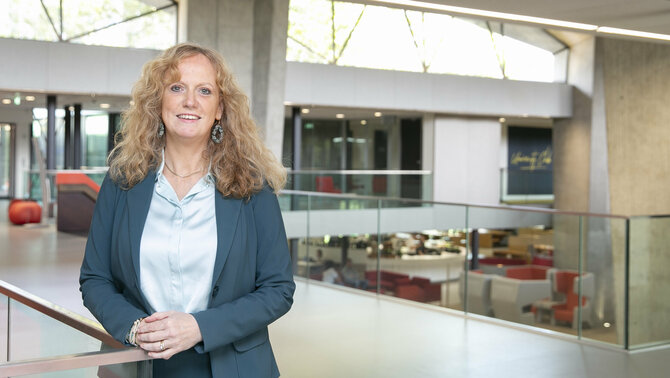Legacy
You see the world is facing tough challenges, such as sustainability, the energy transition and, as we continue to age, our health in the future. These are big issues to which existing answers often fall short. If you care about these issues, you can contribute to the solutions in a special way.
For generations, by generations
Science is uniquely capable of finding those solutions. In pioneering projects, passionate students and researchers are working on new ways to meet the challenges of today and tomorrow. The fundamental research they do is enormously valuable, but also costly. With your legacy, you give future generations a chance for a cleaner, healthier and more beautiful future.
Contact
Ms. drs. E.W.M. (Edith) Snelders
e.w.m.snelders@tue.nl
+31 6 14 35 71 90

Personal wishes
We are happy to help you fulfill your personal aspirations. Would you like a personal conversation about your ambitions and how we can match them with ours? Ton Backx, director UFe, and Edith Snelders, team leader UFe, will be happy to speak with you.
ANBI status
Whatever you donate to us will fully benefit the researchers and students of Eindhoven University. UFe has the ANBI status (Algemeen Nut Beogende Instelling), which means that donations are in most cases exempt from tax on gifts and inheritances. This means that your contribution to UFe will fully benefit the cause.
More information
Do you prefer to read more about bequeathing to Universiteitsfonds Eindhoven (UFe) at your leisure? Request the brochure via the button below and read all about the various options for including UFe in your will. We also explain the application and impact of your contribution.
Please note that the UFe brochure is currently under construction. For now, you can find inspiration in the general magazine on legacy to science.
Stories of generations
How to bequeath to the Eindhoven University Fund
You can include our Fund in your will in two ways. In both cases: unlike individuals, as a Fund with ANBI status, we are exempt from inheritance tax. Every Euro you leave us will therefore benefit science.
1 - A bequest
You let the Fund share in your inheritance, that part is called a bequest, you assign a part of the inheritance to the Fund. This allocation must always be recorded in a will. This is the most common way of bequeathing.
2 - An inheritance
You make the Fund and possibly, other charities and/or individuals your heirs. You then assign a percentage of the inheritance to each heir. Here we talk about percentages because the exact amount will only be known once the executor has made a complete survey of all assets and debts.
We actually only see this construction (the Fund becomes heir) in situations where a testator has no legal heirs and therefore wants to allocate the entire estate to our Fund.
Good to know
Always go to the notary
For a will to be valid, it must be drawn up and ratified by a notary. The notary ensures that the existence of the will is registered with the Central Register of Wills. There, after the testator's death, parties who suspect or know that they are entitled to a portion of the inheritance can obtain information as to whether a will exists and with which notary that will is kept.
Notifying is not necessary but is allowed
You do not have to notify us if you have included us in your will. This is because, as with all wills, whether there is a will and what it contains is secret. We suggest that you consider - if you bequeath to the University Fund - that you do inform us about this. This is because it could happen that news of a death does not reach us.